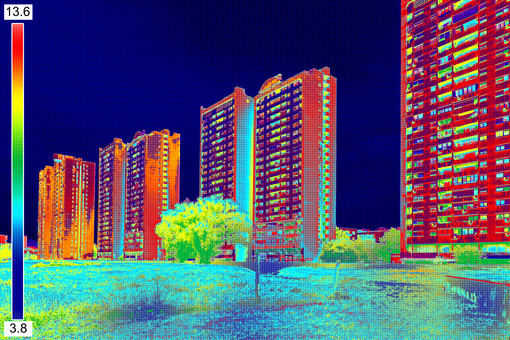Written by Anita Derjanecz, Managing Director of REHVA
Over half a year after the invasion of Ukraine by Russia, European governments struggle to ensure sufficient fossil fuel for this winter. They seem to be obsessed with purchasing gas and oil, without focusing on the real causes of the current crisis: the ever-increasing total energy demand and the slow transition to a low-carbon Europe with sustainable energy sources. The difficult past years have been training policy makers in crisis management. However, the climate and energy crisis can’t be solved with short-term and short-sighted measures, like labelling natural gas and nuclear energy investments green. We need long-term plans to solve the problem in a sustainable way.
Yet in the current media coverage and political debates one can mainly hear about the energy supply side, how to buy or extract more natural gas and oil and lower the price. Focusing only on the supply side and short-term fixes leads away from the real long-term solution. The cheapest and cleanest energy is what we don’t use. This is called the “energy efficiency first principle” at EU policy level. We shall decrease the energy demand first, then cover the remaining low amount of demand with green and sustainable energy sources.
The building and housing sector is in the centre of the current turmoil, as fossil fuels imported from Russia are needed to heat a largely inefficient building stock. The poor energy performance levels of our buildings have been well known for many years, well before getting into this latest energy crisis. The Energy Performance of Buildings Directive (EPBD) that aims to set minimum performance requirements for buildings, celebrated its 20th anniversary this year. Political goals to tackle the problem have been evolving at EU level from the Clean Energy for Europe package to the EU Green Deal and the Renovation wave, setting ambitious targets for building energy efficiency and decarbonisation. The implementation, however, has been too slow and ideas are often killed at member state level. Recent analyses, like the latest EU Buildings Climate Tracker of BPIE shows that EU countries are way off track from decreasing the final energy consumption of households, and far away from the goals set for increasing the share of renewables in heating and cooling.
The current EPBD review proposes the definition of Minimum Energy performance Standards (MEPS) for the worst performing buildings to boost deep energy renovation. This would tackle the energy crisis and reduce energy bills of the most vulnerable. A recent analysis of BPIE and Climact found that MEPs and RePowerEU measures to renovate the worst performing building stock to D energy level by 2030 in the EU, would reduce greenhouse gas emissions by 17% and gas demand by 7% compared to 2015 levels. Yet Member States want to water down the proposal as we learned from the latest Council position documents and meetings.
The REPowerEU plan declared the need for massive deployment of heat pumps. The Commission announced additional and redirected funding to implement the REPowerEU plan, including €56bn earmarked for measures to increase energy efficiency and install heat pumps. Member states shall follow by directing massive investment to comprehensive and ambitious renovation programmes at a very fast pace. The technology and solutions are there, but we need the political will and an enforcing regulatory framework to deploy them. It’s not a question of money, member states spent €350 billion in the last 12 months only to support households and companies because of the rising energy prices. Let’s imagine if this amount would have been spent on energy renovation measures!
Energy efficiency, and not alternative purchase routes of fossil fuels will decrease Europe’s dependency on autocratic countries, help us through future winters and reduce energy poverty. If governments fail to understand and act on this, they ignore their responsibility in tackling the energy and climate crisis and let down their citizens.

